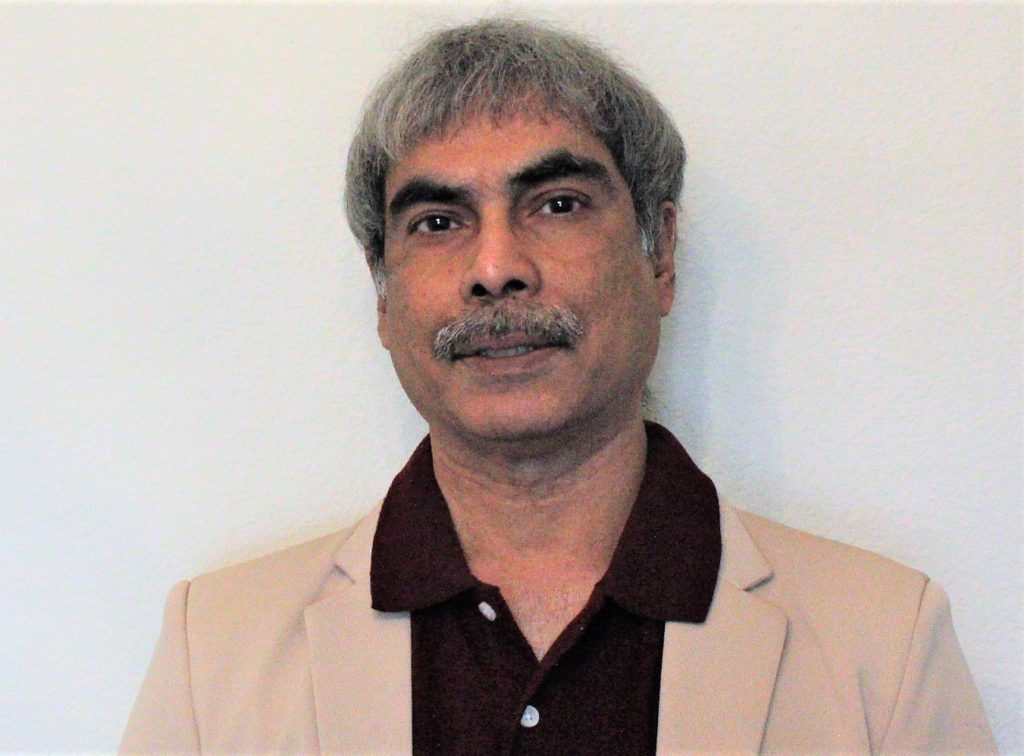LAST DATE FOR ENROLLMENT: 5 FEB 2022
Introduction
This 15 hour course aims to use an analytic example-driven approach that provides a history-based global view of knowledge systems and the dispersal mechanisms for these, ending with the Western experience. Understanding the historical context of various knowledge systems helps one appreciate their hidden assumptions and worldview which is not apparent to the modern student. This will also give an overview of the historical arc of the process of knowledge creation and will be a preamble to an upcoming course on Western Knowledge Systems where we will cover more indepth meta narratives, drishti and civilizational goals underpinning the production of knowledge in the West.
The course instructor Dr. Raj Vedam, has done extensive study of the evolution of knowledge systems and is a well-regarded orator on this topic. This course gives an opportunity to learn this essential perspective on knowledge systems directly from him in an in-depth manner.

Learning Outcomes
At the end of the course, students gain an appreciation of the following:
- how all knowledge systems are connected
- how knowledge got disseminated through migrations and trade
- how social, cultural, political, military and economic factors provided motivation for driving knowledge generation in some areas
Course at a glance
- Speaker: Dr. Raj Vedam
- Fee:
- INR 3000 (for enrollments from India)
- USD 75 (for international enrollments)
- Medium: English
- Duration: 10 sessions
- Date: 7 Feb 2022 – 19 Feb 2022
- Time: 7:00-8:30 PM IST (Mon-Fri)
- Mode: Online (via Zoom)
- Link: https://us02web.zoom.us/meeting/register/tZcvf-GurzsqGddgGmz0SwnX-38yiWLRF3p7
About the Speaker

Dr. Raj Vedam holds a doctoral degree in Electrical Engineering, and has many years of multi-disciplinary work experience in diverse industries including Power, Aircraft, analog and digital Electronic Design Automation, and Oil & Gas. With several journal and conference papers and patents, he is an innovation leader, with strong interest in multiple areas of technology. His current professional interests include optimization, modeling and machine learning.
As a scientist, Raj Vedam researches the roots of modern sciences, mathematics and technology. Whereas Western narratives favor the origin of astronomy and math (among other fields) as having originated outside India and imported into India during various invasions, Raj Vedam’s multi-disciplinary studies using data from several published sources reveal otherwise. His research proposes an ancient Indian civilization that made advances in several fields of knowledge.
Dr. Vedam believes that an evidence-based narrative of Indian history is urgently needed to correct the grievously distorted identity and history of the Indian civilization. Towards that, he has delivered over 150 talks in various cities in India and USA and over a dozen teacher-training workshops. He is a visiting faculty at Hindu University of America and offers courses on his research findings. He has also taken the lead in reviewing and correcting school history textbooks in two states in India and in Texas in USA.
LAST DATE FOR ENROLLMENT: 5 FEB 2022
Detailed Session Plan
Session – 01: Overview, Goals
- Overview of Workshop
- What is a Knowledge System? Examples, Discussion
- How civilizational goals, drishti, drive the evolution of Knowledge Systems
- Role of Knowledge Systems in the evolution of Civilizations
- Role of historiography in today’s narratives about evolution of knowledge systems.
Session – 02: Knowledge Systems of the Ancient World – an Overview
- Ancient India
- Ancient Egypt
- Ancient China
- Ancient Mesopotamia
- Ancient Meso-America
- Ancient Greece & Rome (West)
Session – 03: Knowledge Systems: Astronomy: Deep Dive
- Astronomy in Ancient India
- Astronomy in Ancient Mesopotamia
- Astronomy in Ancient China
- Astronomy in Ancient Greece (West)
Session – 04: Knowledge Systems: Mathematics: Deep Dive
- Mathematics in Ancient India
- Mathematics in Ancient Mesopotamia & Egypt
- Mathematics of Ancient China
- Mathematics of Ancient Greece & Rome (West)
Session – 05: Knowledge Systems: Medicine: Deep Dive
- Medicine in Ancient India
- Medicine in Ancient Mesopotamia & Egypt
- Medicine in Ancient China
- Medicine in Ancient Greece & Rome (West)
Session – 06: Knowledge Systems: Dispersal
- Very Ancient Migrations
- Climate-Induced Ancient Migrations, 2000-1900 BCE
- Trade Networks, Ancient, Indo-Roman, Silk (West)
- Travelers from and to Greece, 550BCE – 100 BCE (West)
- Travelers from and to China
- Invasions: Islamic
- Invasions: Colonial (West)
Session – 07: Knowledge Systems: Fall of Europe, Dark Ages, & Growth of Islamic Knowledge
- Christianity, Fall of Reason, Persecution, Irrationality & Diseases: 3rd Century – 13th Century
- Seeding of Islamic Knowledge: 7th – 16th Centuries
- Destruction of Indian Knowledge Systems
- Prominent Islamic scientists and their methods, advances in several fields
- Dispersal to Western Europe (West), 9th – 13th centuries
Session – 08: Knowledge Systems: Towards Rationality in Europe
- Fall of Muslim Spain & Christian Constantinople: Consequences
- Renaissance, Adoption of Math & Logic; Reformation & Age of Reason
- Voyages & Colonization of Americas & Asia
- Asia’s economic & intellectual contribution to growth of knowledge systems in the West
- Struggle of Astronomers, Physicists, Biologists: Galileo, Newton, Bruno, Darwin, etc.
Session – 09: Knowledge Systems: Industrial Revolution & Modern Tech
- Triggers for Industrial Revolution. Engines of growth: Bessemer, Steam Engine, textiles, etc.
- Age of Enlightenment doesn’t Prevent Colonization, captive Markets, slavery, Domination
- Modernity: Electricity, Gas Engine, Aircraft, Atom, Relativity, Antibiotics & Vaccines
- Accelerating Modernity: Process Industry, Electronics, Spacecraft, Computers
- Rapid Change: DNA, Telecommunication, Internet, AI, Quantum
Session – 10: Knowledge Systems: Explosion of World Knowledge
- World Wars and impact on technologies
- Cold War, NATO, Warsaw Pact, NAM, and parochial spread of knowledge
- USA domination as world destination for universities and research
- NASA Spin-offs, VLSI and PC, DARPA & Usenet, Human Genome, CRISPR, etc.
- Globalization, Climate Change, decline of meritocracy in Wokeism, & today’s challenges.
- Workshop roundup: emphasize (a)knowledge connectedness, (b) antecedents of knowledge systems, (c) dispersal, (d) how knowledge amplified political, military, economic power, and (e) our role as Dharmics in promoting knowledge for greater good of the universe.




